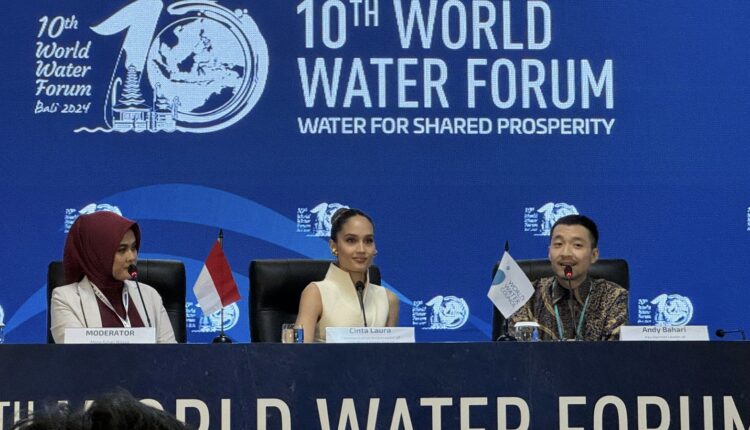Echoing the 10th WWF in Bali, Young Generation Must Care About Water for Shared Welfare
DENPASAR — The 2024 World Water Forum (WWF) in Bali is an excellent opportunity for the young generation to discuss and exchange knowledge with various stakeholders regarding global water issues. With the knowledge gained, the younger generation must be able to preserve the earth, especially the world’s water, for the welfare of the wider community.
The involvement of young people is very important in increasing awareness of the wider community in Indonesia regarding better water management in the future.
Therefore, through the 10th World Water Forum it is hoped that it can raise awareness among young people in the country to contribute significantly to better water management.
javascript:false
javascript:false
javascript:false
javascript:false
javascript:false
“We can instill awareness to create real action in the younger generation towards sustainable water management. “If not, then no action can be taken and more and more people will not care about water,” said World Water Forum Communication Ambassador Cinta Laura at the World Water Forum Media Center, Ministry of Communication and Informatics (Kominfo), Nusa Dua, Bali Nusa Dua Convention Center (BNDCC), Badung Regency, Bali Province on Monday (20/5/2024).
The need for good water management, continued Cinta, has an impact on improving the quality of life of domestic human resources (HR). The reason is, water is a very important commodity in human life, because an adequate supply of clean water will make Indonesia’s human resources healthier and more globally competitive.
“Welfare is greatly influenced by the fulfillment of water needs for the community,” added Cinta.
Responding to this, KOL World Cleanup Day Andi Bahari said that water is a source of life for all living creatures. Thus, the existence of clean water sources must be properly maintained by all stakeholders in Indonesia.
One way to keep the water clean, continued Andi, is to clean up any rubbish in water sources and rivers in a number of areas in the country. He believes that these efforts will have an impact on sustainable water management.
“Cleaning up rubbish is closely related to the sustainability of water sources. “So it has become a national scale issue that is closely related to water sustainability in the future,” said Andi.
In optimizing this, all stakeholders need to collaborate together to ensure waste-free water management. The way to do this is to actively participate in cleaning up rubbish in the environment.
Cleaning up rubbish is a collective responsibility, not just the relevant government agencies. This principle must be adhered to firmly by the entire community, in order to maintain waste-free management of water sources.
“This is a shared responsibility, because there is only one earth. “Joint steps are needed to realize sustainable water management,” said Andi.
